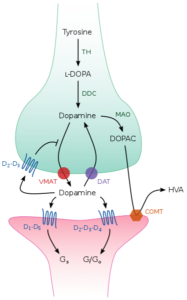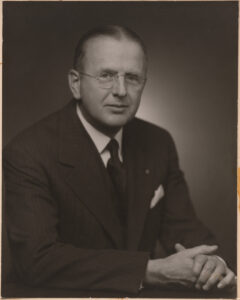 “Can you please hand me your purse so I can look through it?” My student stared at me stunned; she did not know how to answer. “No, seriously, hand over your purse, I’d like to see what’s in it, maybe something I’d like to take for myself.” She said slowly and with great care, “No, I’m not handing over my purse.”
“Can you please hand me your purse so I can look through it?” My student stared at me stunned; she did not know how to answer. “No, seriously, hand over your purse, I’d like to see what’s in it, maybe something I’d like to take for myself.” She said slowly and with great care, “No, I’m not handing over my purse.”
“Why are you being so negative?” I asked. There was laughter in the room. The attendees got the point. The female student commented that she thought it best to always stay positive. We had been discussing the futility of one-sidedness in being, behaving, and thinking, and I was trying to convey the impossibility of being only one way, a perpetually “positive” person, for instance. I wanted the class to see that there are plenty of reasons to be negative in life, it only depends on the context. In other words, negative thinking is just as valuable as positive thinking despite what so many well-intentioned teachers have taught us.
We have two sides to us in every facet of life we can think of. We are proficient at some things, deficient at others: I am a skilled chiropractor, a fairly good cook, and I have ample experience at training dogs. However, I cannot fly a plane; I know zero about computer programming, and I have almost no experience with acting. Equivalently, all people are kind and good-mannered when being supported in their endeavors. They can also become downright mean and nasty when challenged. Is this a character flaw? Hardly. We are at times dumb, other times smart; we have loads of energy on some days but feel tired and rundown on others. This pattern is found throughout our entire being – there are no exceptions. Nobody is all one way or another.
 This is especially true when it comes to our thinking patterns. We have developed a neurohormonal system that rewards us when we encounter things that support us like food, sex, and shelter. The hormone involved is dopamine, and we get a rush whenever we “score” what we want (desire, need, love). Alternately, we also secrete hormones like epinephrine and norepinephrine which are responsible for our stress reactions (fight or flight) when we encounter things that challenge us. These are primitive systems that have definitive functions revolving around our survival. If we were to have only one or the other, we would surely perish as we would starve or be unable to recognize peril due to a lurking predator or some other danger. Our most primitive neurological system is a balanced interplay between two opposing sides.
This is especially true when it comes to our thinking patterns. We have developed a neurohormonal system that rewards us when we encounter things that support us like food, sex, and shelter. The hormone involved is dopamine, and we get a rush whenever we “score” what we want (desire, need, love). Alternately, we also secrete hormones like epinephrine and norepinephrine which are responsible for our stress reactions (fight or flight) when we encounter things that challenge us. These are primitive systems that have definitive functions revolving around our survival. If we were to have only one or the other, we would surely perish as we would starve or be unable to recognize peril due to a lurking predator or some other danger. Our most primitive neurological system is a balanced interplay between two opposing sides.
So why does there seem to be this push toward always thinking positively then? Positive thinking has its roots in the early 19th century as a part of the New Thought movement. Part metaphysical, part Christian theology, New Thought taught a way of thinking, which was understood to define one’s reality. Not only are one’s thoughts the creator of one’s reality but also that positive thinking could impact the entire world for the better. William James, the father of American psychology, branded New Thought as “the religion of healthy-mindedness.”

 New Thought was influenced by such luminaries as Emanuel Swedenborg and Ralph Waldo Emerson. But the most well-known and influential teacher of positive thinking was the American Protestant clergyman and author, Norman Vincent Peale, who wrote the best-selling book, The Power of Positive Thinking. The basis of this book is that the mind controls how the body feels, and thus, by releasing negative energy and emotions, infinite energy is given to the body through God. The book asserts that happiness is created by choice and worrying only inhibits it and should be stopped. A foundational premise in the New Thought movement is that negative thoughts can lead to physical ailments and disease. Positive thinking, then, is the basis for a peaceful, positive life, which includes health, professional, and financial well-being.
New Thought was influenced by such luminaries as Emanuel Swedenborg and Ralph Waldo Emerson. But the most well-known and influential teacher of positive thinking was the American Protestant clergyman and author, Norman Vincent Peale, who wrote the best-selling book, The Power of Positive Thinking. The basis of this book is that the mind controls how the body feels, and thus, by releasing negative energy and emotions, infinite energy is given to the body through God. The book asserts that happiness is created by choice and worrying only inhibits it and should be stopped. A foundational premise in the New Thought movement is that negative thoughts can lead to physical ailments and disease. Positive thinking, then, is the basis for a peaceful, positive life, which includes health, professional, and financial well-being.
With all these potential benefits to positive thinking, why wouldn’t we want to adopt such a practice? In theory, I think we would: It is clearly more uplifting to think positively. And in times of crisis, optimistic thinking is a powerful equilibrator to offset panic and hyper-emotional thinking. There is a power in believing, so why wouldn’t we want to believe the best?
However, a hell-bent attachment to positive thinking can also work against us. Numerous circumstances warrant bringing attention to that which we call negative. Being alert in public, keeping one’s eyes open, and being on the lookout for danger is never a dumb move. Nor is avoiding an infatuation with a potential romantic, business, or community service partner, which is paramount to keeping oneself safe in person, property, and/or reputation. When one is too focused on “keeping things positive,” they allow themselves to drop their guard and invite danger in the form of predators and charlatans. Like with anything, it is healthy to maintain a balance between trust and skepticism, enthusiasm and nonchalance, and attention and disregard.
 My observations of positive and negative thinking have led to a particular awareness: People who tend to gravitate toward more negative, pessimistic thinking should, indeed, make a concerted effort toward positive thinking. Those who are more inclined toward an optimistic, uplifted frame of mind, should work hard toward strengthening their negative thinking. Is negative thinking too harsh a word? Then how about cautious thinking, great discernment, skepticism, or playing things cool? How we phrase it is less important than the idea behind it. What matters is the healthy balance between two poles, which is necessary not only for survival but ultimately for a state of thriving.
My observations of positive and negative thinking have led to a particular awareness: People who tend to gravitate toward more negative, pessimistic thinking should, indeed, make a concerted effort toward positive thinking. Those who are more inclined toward an optimistic, uplifted frame of mind, should work hard toward strengthening their negative thinking. Is negative thinking too harsh a word? Then how about cautious thinking, great discernment, skepticism, or playing things cool? How we phrase it is less important than the idea behind it. What matters is the healthy balance between two poles, which is necessary not only for survival but ultimately for a state of thriving.
So, if you find yourself in the throes of negative thinking, do not try to stop it. Instead, ask what purpose it serves you. Is it a warning of potential danger? Is it helping you break your addiction to or infatuation with another person? Is it waking you up to a fantasy that has found home in your mind, but which is not in your best interest, and could even potentially lead to a hard comedown, or even depression? Do not be so quick to dismiss your mental and emotional equilibration function, which has evolved over millions of years to assist you in your survival. Learn to listen and then ask the right questions because of it – in this way, you might find that there can be power in negative thinking too.












